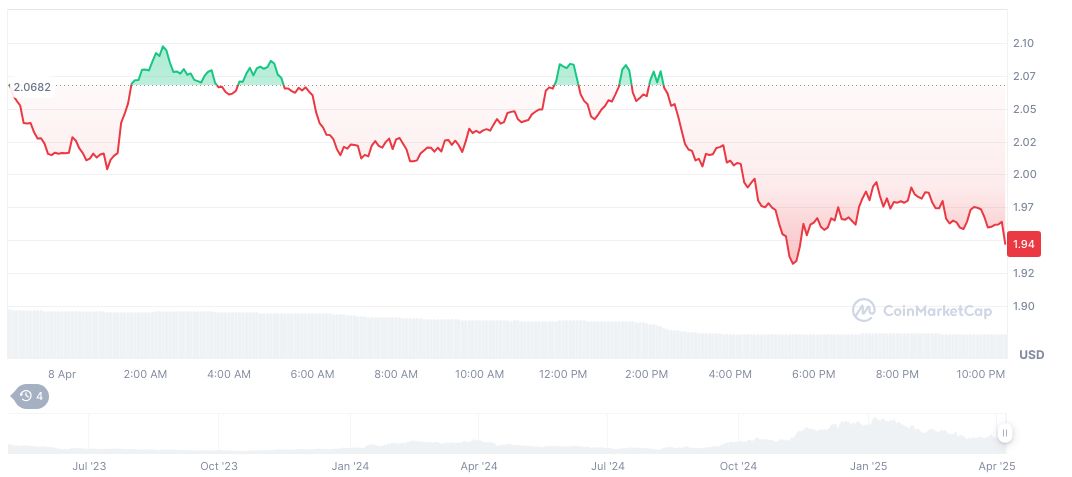- Cboe BZX files SEC application for Canary SUI ETF, expanding crypto ETF landscape.
- Proposal targets institutional adoption with regulated Sui access.
- Potential market impact mirrors Bitcoin and Ethereum ETF approvals.
Cboe BZX has filed a proposal with the US Securities and Exchange Commission to list and trade shares of the Canary SUI ETF as of April 8. This marks a significant step for the Sui cryptocurrency.
The proposed ETF could broaden institutional access to the Sui ecosystem, enhancing the crypto’s market prominence and appeal.
Cboe BZX’s Canary SUI ETF Proposal: Key Objectives and Potential
Cboe BZX has filed a proposal to launch the Canary SUI ETF, aiming to list and trade it on an established platform. The initiative, supported by Canary Capital, plans to track Sui cryptocurrency spot prices. This ETF marks an effort to increase regulatory compliance and transparency for crypto investments.
The filing targets institutional adoption by offering a regulated investment vehicle for Sui (SUI).
Historically, ETF approvals have impacted liquidity and prices significantly. The market is observing this proposal closely, anticipating similar trends seen following Bitcoin and Ethereum ETF launches. Notable figures have yet to issue public statements regarding this filing, leaving speculation about broader reactions.
Sui’s Volatile Price and Institutional Interest Rise
Did you know?
ETF approvals for Bitcoin and Ethereum caused liquidity floods, elevating these assets’ integration into traditional finance. The SUI ETF could initiate a similar pattern, providing regulated exposure to altcoins.
CoinMarketCap reports SUI is currently valued at $1.94, with a market cap of $6.29 billion. Recent trading volume is approximately $1.12 billion, despite a 44.39% decline. The asset’s price has decreased by 6.94% within 24 hours and 60.06% over 90 days. This trend reflects broader cryptocurrency market volatility, particularly for altcoins such as SUI.

Coincu’s research team suggests the ETF application signals growing institutional crypto interest, especially in innovative blockchain networks like Sui. Historical trends indicate that regulated investment options contribute to broader market acceptance, potentially leading to increased SUI adoption and market activity if approved.























